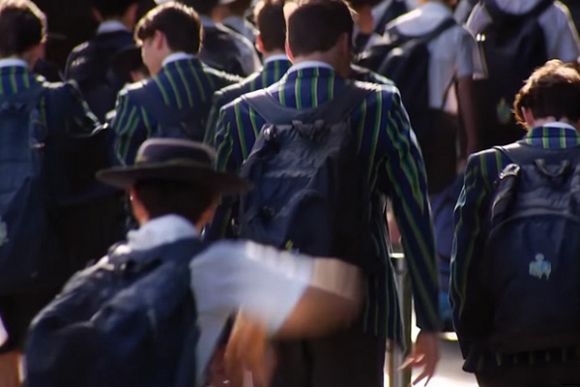Government funding for schools entrenches social inequality and leaves parents with few choices, writes Emma Willson.
I WORK AT a university, with many current and former teachers. Lunchtime conversation often turns to the topic of where we are planning to send our kids to school.
My teacher colleagues care deeply about education, they have insights into best teaching practices and almost without exception, they are turning to private schools. The public school system seems to be as maligned as it is chronically underfunded.
When these conversations are happening, I focus on my lunch and I stay quiet. I’m a single mum on a low income, and like many Australian parents, I just don’t have an option. Parents who care about their child’s education are only able to exercise choice if they happen to earn enough money to pay the exorbitant fees, or are willing to go into crippling debt.
It is not fair that so many Australian kids miss out on a higher quality education because of how much money their parents earn. It is also unfair that those parents who are able to send their kids to private schools are being tricked into supporting a system of inequality and the increasing stratification of society. What choice do they have if they care about their child’s education?
The Government is acutely aware of the problems, as demonstrated by countless reports, commissions and reviews, including the 2010 Gonski report which recommended a redistribution of funding based on a needs-based model.
Our leaders have responded instead with a series of predictable curriculum makeovers that consistently fail to address the elephant in the room: large-scale inequality caused by public versus private sector funding.
The knowledge is there, but the political will is lacking. Could this be because the current status quo benefits those in power and the wealthiest in society, who enjoy the position of privilege afforded by an inequitable class system? Is everyone really okay with that?
The constant pressure to perform highly in assessment scores is demoralising for teachers and contributes to a high rate of burnout in the sector. According to international standards, some key educational outcomes are actually decreasing with each successive wave of government intervention.
Dr Brad Gobby from the School of Education at Curtin University explains some of the consequences of the reigning neoliberal policies on teachers and students:
Without evidence of its benefits to student learning, education policy prioritises the economic goals of education, seeks to organise education according to competition and markets, turns schools into little businesses.
It focuses on performance and accountability narrowly measured through test results, and it cynically treats the teaching profession as a problem needing to be managed by the Government.
And what other, perhaps unseen, long term effects is this having on Australian society?
Dr Gobby says:
Often I think our policymakers and our politicians who have mostly never taught in schools, and who have often attended elite schools, are very quick to shift blame onto teachers and students.
My take on this issue is that we have created a system that is producing inequality and underachievement, in which parents’ private decisions on where to send their children to school is having significant public consequences, and consequences for students attending schools in low SES neighbourhoods.
I don’t want to be polemical, but it is arguably class warfare, unbeknownst to parents.
Private schools have been making the headlines. There is a growing awareness and discomfort around conservative teaching institutions, with questions of corruption, elitism, sexism and classism moving into the realm of public consciousness.
Perhaps it is time for a grassroots movement of parents and teachers to demand change, both with our votes at election time and with enrolment choices.
At the very least, we should be talking about this in the lunchroom.
We need to make sure that all of our children have access to a high-quality education. This means that public money should be going to public schools in an equitable and fair manner.
And if the traditionally “elite” or religious schools wish to continue to be private, they should be funded that way — not from the public purse.
Emma Willson is a writer based on Wadjuk Noongar Boodjar. You can follow her on Twitter: @EmmaJWillson.
Related Articles
 This work is licensed under a Creative Commons Attribution-NonCommercial-NoDerivs 3.0 Australia License
This work is licensed under a Creative Commons Attribution-NonCommercial-NoDerivs 3.0 Australia License
Support independent journalism Subscribe to IA.















